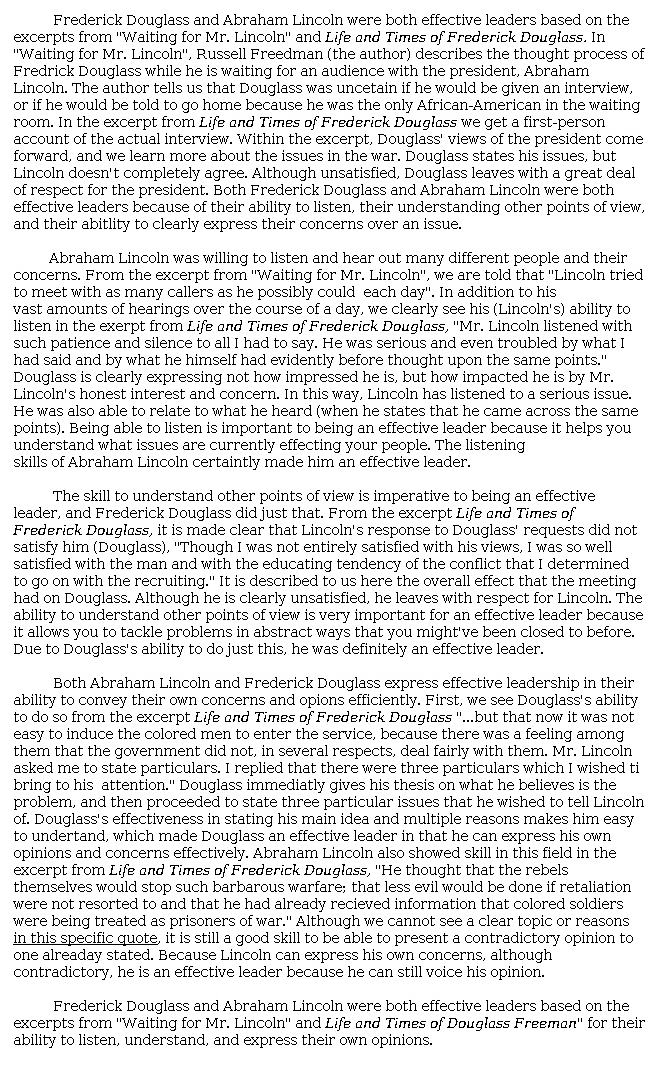2018 MCAS
Grade 8 English Language Arts
Question 8
Idea Development - Score Point 5
The essay presents an insightful central idea and fully develops it throughout the essay. Lincoln and Douglass are described as effective leaders "because of their ability to listen, their understanding [of] other points of view, and their ability to clearly express their concerns over an issue." The essay goes on to expand upon each of these points, noting about Lincoln that "[b]eing able to listen is important to being an effective leader because it helps you understand what issues are currently [a]ffecting your people." Douglass is described as an effective leader because he was able to respect Lincoln's point of view: "The ability to understand other points of view is very important for an effective leader because it allows you to tackle problems in abstract ways that you might've been closed to before." Finally, both men are described as effective leaders for their shared ability to "convey their own concerns and [opinions] efficiently." Both Douglass and Lincoln are shown as capable of voicing unpopular opinions and doing so in a concise and powerful way. The essay demonstrates skillful selection and explanation of details and effective, if somewhat formulaic, organization. Full awareness of the task is evident.
Standard English Conventions - Score Point 3
The essay demonstrates consistent control of grammar, usage, and mechanics. A variety of sentence structures are used for effect and reveal a high level of control: "Douglass is clearly expressing not how impressed he is, but how impacted he is by Mr. Lincoln's honest interest and concern." Advanced vocabulary is spelled correctly and well integrated into the response.

[
5 Points | 5 Points |
4 Points |
3 Points |
2 Points |
1 Point |
0 Points]
